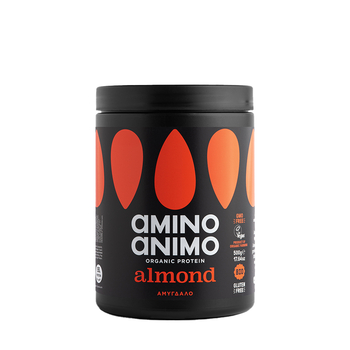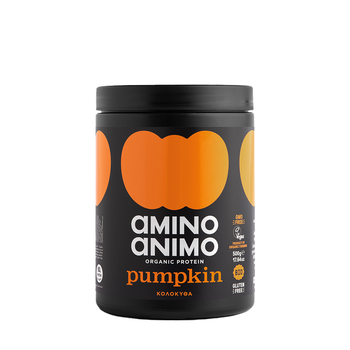We choose our protein supplements carefully

Finding the right protein supplement can be a real challenge these days. The market offers an almost endless variety of products. Given this wealth of options, it is often difficult to keep track and make the best choice. However, to better understand the developments and changes in the world of protein supplements, it is worth taking a look at the history of these food supplements. How has the importance of protein in the diet evolved over time? How are today's trends towards sustainability and ethics shaping the future of protein supplements?
The history of protein supplements
The beginnings in antiquity: Even in ancient times, some cultures recognized the importance of protein in the diet. Greek athletes, such as the participants in the ancient Olympic Games, made sure to eat protein-rich foods in order to increase their performance.
The discovery of protein: In the 18th century, the chemist Antoine Fourcroy discovered protein and recognized its role in the human body. This led to an increased interest in protein sources in the diet.
The first protein powders: The first commercial protein powders came onto the market in the 1950s. They were initially used by bodybuilders and weightlifters to build muscle mass. However, these products were often not very tasty and difficult to digest.
The popularity of protein shakes: In the 1980s and 1990s, protein shakes began to gain popularity. More and more athletes and fitness enthusiasts recognized the benefits of conveniently consumable protein sources.
The demand for sustainability and ethics: In recent years, there has been a clear trend towards sustainable and ethical protein supplements. Athletes and the health conscious are increasingly concerned about the environmental impact and ethical issues associated with animal products in supplements.
The three waves of protein supplementation
Three waves of protein supplementation have emerged, illustrating the shift in the perception and use of protein products:
The first wave: From the 1950s to the 1980s, the focus was on the easy availability of protein. The main priority was to consume enough protein without paying much attention to quality or origin.
The second wave: In the 1980s to 2000s, protein products became increasingly diverse and often enriched with additives and flavors. The focus was on convenience and taste.
The third wave: The current phase of protein supplementation emphasizes the importance of quality, sustainability and ethics. More and more people are paying attention to the origin of protein sources, preferring plant-based options and favoring products that are environmentally friendly and ethical.
The future of protein supplements
The increasing demand for environmentally friendly and ethical protein supplements goes hand in hand with a significant shift in many people's dietary preferences. More and more people are consciously opting for plant-based protein sources. But why this shift to plant-based options? The answer lies in the numerous benefits that plant-based protein sources offer:
1. complete amino acid profile
The old argument against plant-based proteins was that they would not provide the full amino acid profile found in animal protein. But modern plant-based protein sources provide all the essential amino acids the body needs. The increased demand has led to more research and development in this area. Through better understanding and technological advances, modern processing techniques that allow plant proteins to be optimally isolated and combined, athletes can be sure they are getting all the building blocks they need.
2. less inflammation
Animal proteins, especially those from red meat, can promote inflammation in the body. For athletes who regularly engage in intensive training, this can lead to longer recovery times and an increased risk of injury. Plant proteins, on the other hand, have an anti-inflammatory effect and can therefore contribute to faster regeneration and a reduction in injuries.
3. better digestion
Some athletes report bloating, indigestion or other stomach problems after consuming animal protein powders. Plant-based proteins are often easier to digest and can reduce these side effects. They also often contain additional fiber, which can promote intestinal health.
4 Sustainability and ethics
As discussed in the previous section, many athletes are increasingly environmentally conscious. Switching to plant-based supplements is often part of a larger commitment to a more environmentally friendly lifestyle. The fact that no animals have to suffer or die to produce a plant-based protein powder is also a deciding factor for many.
5. additional nutrients
Many plant-based protein powders are not only rich in protein, but also contain a wealth of vitamins, minerals and antioxidants that are lacking in animal protein. These additional nutrients can boost athletes' overall health and well-being.
A look at the top elite of sport shows just how profound the change is. Soccer stars like Lionel Messi and Alex Morgan, NBA players like Kyrie Irving and tennis champions Serena Williams and Novak Djokovic: they have all integrated plant-based supplements into their dietary routines.
It is clear that this change is not just a fad. Herbal supplements offer a wealth of benefits that can boost both performance and overall well-being for athletes. And while the final decision on whether to use plant or animal-based supplements is certainly a personal one, the benefits and growing list of professional athletes who have made the switch speak for themselves. At Fitagon you will find the best quality plant-based protein.




